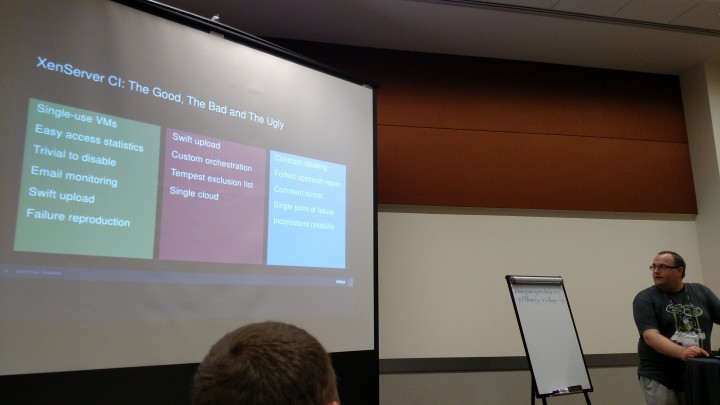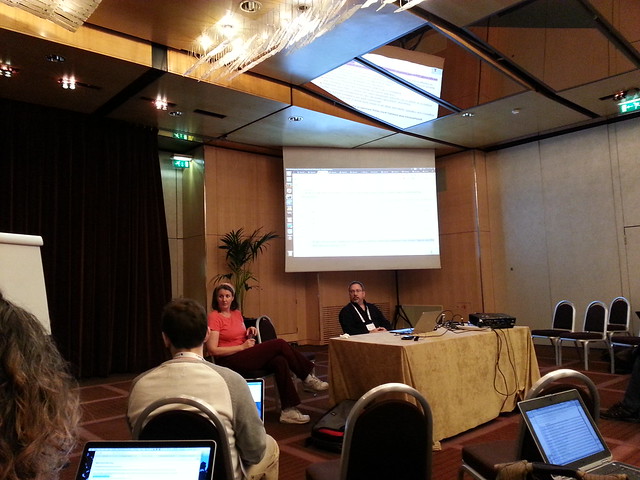We held our second Third Party CI Working Group meet up at the Vancouver OpenStack Liberty Summit. Because of limited space and a proposed user session, we were grouped together with the previously proposed Sharing Best Practices in Setting up and Operating OpenStack CI Loops Birds of a Feather session. Despite the fact that we have more that 100 CI systems, and that we had more than 100 attendees sign up, we had plenty of space. I was worried about the available space since the room only seated about 50 and we had 80-100 in Paris. I’m not exactly sure why we didn’t have the same turnout, maybe too short of an advertising runway after the cross-project sessions were finally decided, or the small space assigned in the back of the second building, regardless, it was really nice to meet more friendly CI operators and share experience. I estimate about 35-40 attended.
The Xen folks welcomed us with open arms into their BoF session. We decided to split the meeting into their CI overview and experience, and then to leave time for working group discussions. Stefano Stabellini and Bob Ball, both from Citrix, presented their experience bringing up a CI system for testing Xen + Libvirt, and explained the difference between XenServer driver testing and what they were doing for Xen + Libvirt.
Following this, we had some time to discuss some of the agenda items agreed upon in the weekly Third-party CI working group meetings. These items are listed in the etherpad for the session, so I won’t repeat them here. As always, time passed way too fast and we got little decided to further the work items identified in the etherpad.
Just like I did at the Paris session, I asked those attending a few questions and did a quick show of hands and came up with some somewhat surprising answers:
- The majority attending had already set up, or were in the process of setting up a third party CI system to test a driver or OpenStack on a different platform.
- There were only a few that were there to learn about OpenStack third party CI in advance of starting their test system.
- From those in #1 that had a system, only a few had even heard of the third party CI meetings we hold every week.
- Most did not monitor the openstack-dev maillist or ever get on IRC. Wow.
- Everyone I talked to said they would be willing to share tools they had written.
As a result, I did a quick overview of the meetings that are held weekly and urged everyone to get involved. My takeaway actions are:
- We must increase participation. The questions is, how do we reach teams if they do not monitor email or get on IRC?
- We need to do a better job of advertising that help is available.
If you are reading this, please come to the weekly meetings that fit into your schedule. We can improve the consumability of OpenStack CI and our test systems by sharing our experience and tools. We have a repository now, and there are already some good tools there contributed from other systems. Spread the word.
Thanks everyone that attended the BoF session in Vancouver!

